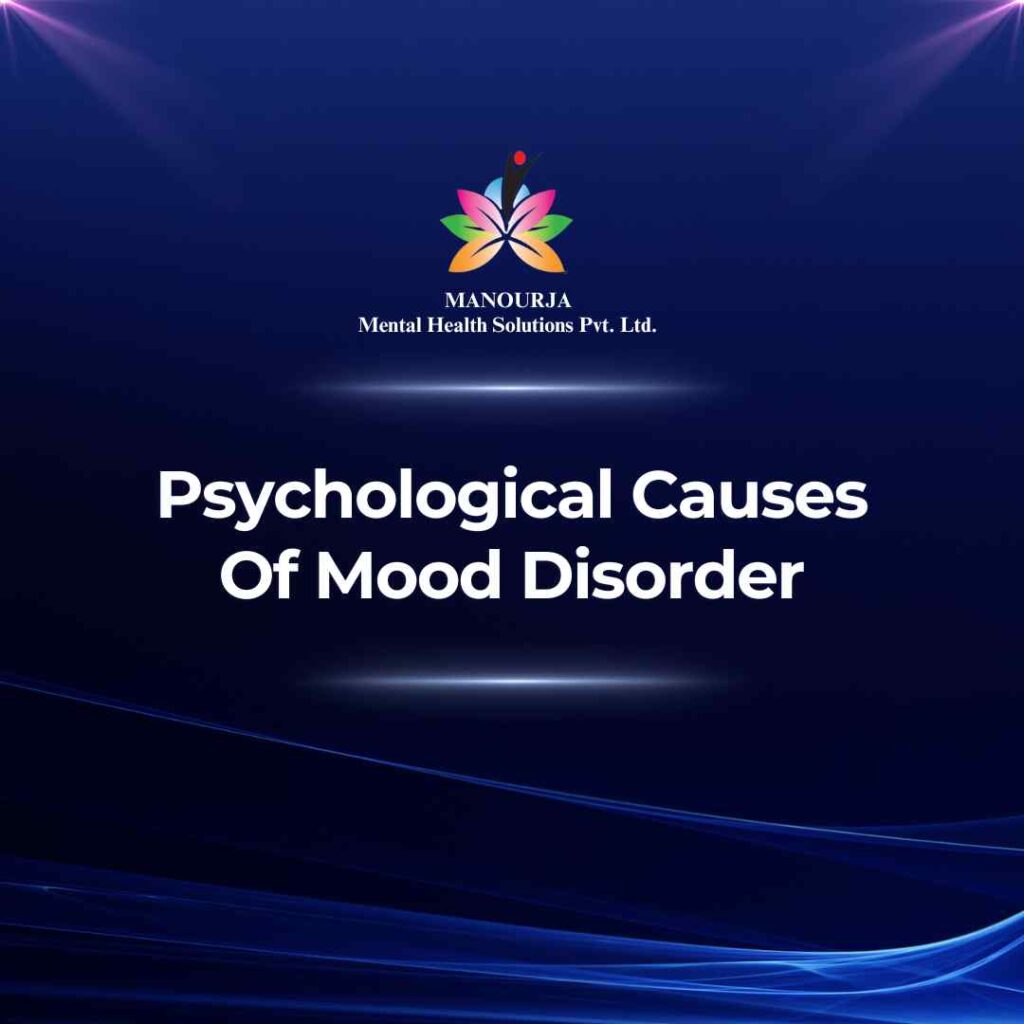Psychological Causes of Mood Disorder

Mood disorders, including major depressive disorder and bipolar disorder, are influenced by an intricate combination of factors, among which psychological causes play a significant role. These psychological factors encompass thought patterns, emotional responses, and behaviors that can contribute to the onset and progression of mood disorders.
Below are key psychological causes commonly associated with mood disorders.
Cognitive Factors
Negative thinking patterns and cognitive biases significantly contribute to mood disorders. This includes persistent pessimism, catastrophizing, or black-and-white thinking. People with depression, for instance, may have a cognitive style characterized by a tendency to interpret situations in a negative way, expect the worst outcomes, and perceive themselves, their environment, and the future in a persistently negative light.
Emotional Dysregulation
Difficulty in managing emotions effectively can lead to mood disorders. This may involve excessively intense emotional reactions to situations or the inability to bring oneself out of a negative emotional state. Such dysregulation can create a cycle where emotional responses exacerbate stress, which in turn leads to further mood instability.
Stress and Trauma
Chronic stress, whether from daily hassles or major life changes, and traumatic events like the loss of a loved one, abuse, or a major accident, can trigger episodes of mood disorders. The psychological impact of these experiences can alter one’s mood and emotional state, leading to prolonged sadness or depression.
Learned Helplessness
This psychological condition occurs when an individual feels powerless to change their situation after repeatedly experiencing a lack of control. This can lead to a state where they do not attempt to get out of negative situations, even when opportunities to change are presented, contributing to depressive symptoms.
Self-Esteem Issues
Low self-esteem is a common psychological factor in mood disorders. Individuals with low self-esteem may be more vulnerable to depression and anxiety, as they might have a poor self-image and perceive themselves as inadequate or unworthy.
Interpersonal Theories
Difficulties in personal relationships can also be a psychological cause of mood disorders. This might include unresolved grief, social isolation, or conflicts with significant others. According to some theories, depression is sometimes triggered by poor relationships or the perceived loss of affection and approval from others.
Behavioral Factors
Certain behaviors can also contribute to the development of mood disorders. This includes avoidance behaviors where individuals may withdraw from activities that could potentially make them feel better, or reinforcement of negative patterns that maintain feelings of depression or anxiety.
Understanding these psychological causes is crucial for the effective treatment of mood disorders. Therapies like cognitive-behavioral therapy (CBT), dialectical behavior therapy (DBT), and interpersonal therapy (IPT) are designed to address these underlying psychological factors by changing maladaptive thoughts and behaviors, improving emotional regulation, and enhancing interpersonal skills.
At MANOURJA, we believe in the transformative power of counseling. Our experienced therapists offer a safe and supportive space where you can explore your thoughts, emotions, and challenges. Through personalized counselling sessions, we’ll work together to develop coping strategies, build resilience, and achieve lasting positive change. Discover the path to a healthier, happier you with MANOURJA counselling services.
MANOURJA Rehabilitation Services
At MANOURJA, we’re dedicated to helping you in rebuild your life, after difficult times. Our rehabilitation services focus on understanding what you need to move forward, whether you’re recovering from addiction, trauma, or any psychological – social challenges. We create personalized plans, that are all about helping you, regain your strength and find hope again. With a caring team by your side, you’ll have the support to make real progress and take steps toward a brighter, healthier future.
